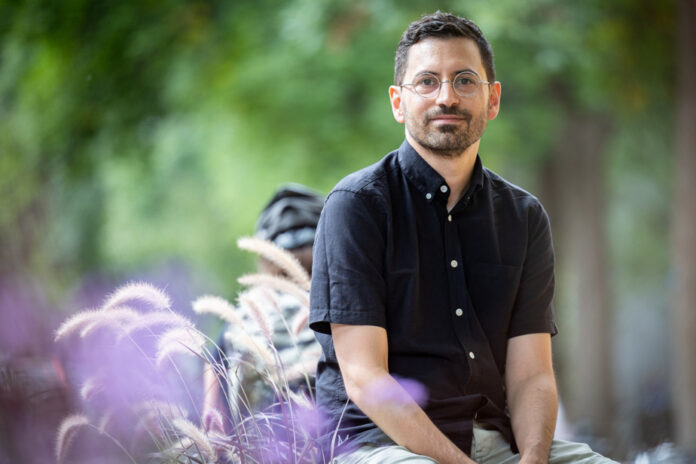His first novel, Le compte est bon, is a surprising literary game. Audacious, above all, since Louis-Daniel Godin requires the reader to let himself be transported without landmarks in scenes drawn from his family mythology, and absorbed in scattered memories which are then unrolled, dissected then rehashed until exhaustion before ultimately be questioned.
“These memories, I often told them on the couch, so I had already had fun going around them. It’s not bad when I decided that my analysis was over that the desire to write was born, ”says the thirty-something who now teaches literature at UQAM.
As on the couch of a psychoanalyst, he therefore let himself go to free association in writing, crossing scenes and memories whose vanishing point is childhood.
The narrator of Count is good grew up in Laval in the 1990s. Watching The Simpsons, The Golden Egg Hen, Numbers and Letters and South Park. He lived through his parents’ divorce, saw his mother get back together and struggle to make ends meet, had to deal with the successive moves that marked his childhood. A childhood which is not particularly dramatic, admits the author, even if certain scenes which inspired the novel made a “strong impression” on him, leaving him, despite the passage of the years, with a word, a sentence, a idea, vertigo, joy, suffering.
He counts “a bit of everything”, begins to calculate the ages, the amounts, the dates, to come to know if the account is good – a formula taken from his favorite show, Numbers and letters.
“I have the feeling that if everyone does the exercise of delving into their past, of giving importance to mundane events, everyone finds, like stones being turned over, their share of ‘shadow. In childhood, we are always confronted with laws whose nature we do not really understand. You have to deal with conflicting laws – mother’s law, father’s law, social law, teacher’s law – and it’s impossible to be even because everyone has different demands. »
This idea of ”being quit with life”, precisely, but quits with his mother, too, who adopted him at 5 days old and to whom he feels he is in debt, torments him and torments him through the novel.
“I start from this idea that, having been adopted, I have a desire to repay my place in the world; at the same time, I have the impression that it concerns a little bit everyone. »
But, he is now convinced, it is impossible to be quit with life. Writing, on the other hand, perhaps makes it possible to approach it, in his opinion, even if one realizes ultimately that there will always be a gap with the debt that one is trying to repay, between the truth and fiction, memory and reality, childhood and adulthood.
“Life is made up of these gaps, these holes, these intersections, this sticking out stuff,” he says.
If he candidly admits that he does not have the answer to all these existential questions that haunt some people like him, he is convinced that we are the sum of our experiences. And that “we must move forward, we must move forward anyway”, as he writes. Even in ignorance of things and numbers, he insists, even if it means stepping back to gain momentum forward.















